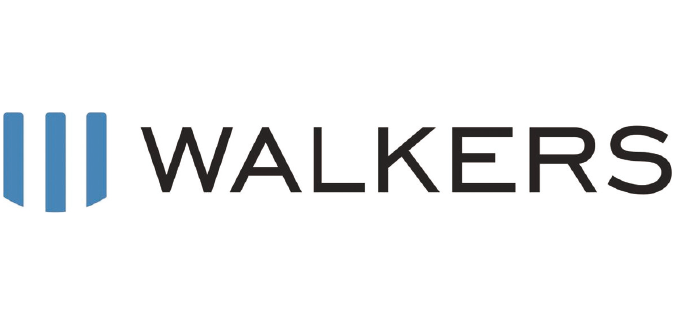 By James Twigg and Daniel Lo, Walkers
By James Twigg and Daniel Lo, Walkers
Ever since the introduction of bitcoin more than a decade ago, we have seen the expansion of the cryptocurrency ecosystem, with over 2,000 cryptocurrencies in existence today and growing daily. In the race towards cryptocurrency and blockchain dominance, came the emergence of a fundraising method for crypto-founders to finance their companies, known as the initial coin offering (ICO). An ICO is a method whereby new projects sell their underlying crypto tokens/coins in exchange for fiat currencies or cryptocurrencies of immediate and liquid value such as bitcoin and/or ether.
ICOs in review
As of April 2019, over 3,500 ICOs have completed their fundraising, according to CoinLore. In 2017, CB Insights reported that ICOs raised approximately US$6.3 billion, while in 2018 the amount jumped to approximately US$19.2 billion, according to Strategy & with some of the biggest ICOs to date, the top four being: EOS (US$4.1 billion), Telegram (US$1.7 billion), TaTaTu (US$575 million), and Dragon (US$320 million). It is worthwhile to note that EOS and TaTaTu have both chosen the Cayman Islands as their domicile, while Telegram and Dragon have both chosen to domicile in the British Virgin Islands.
Despite this growth in ICO activity in 2018, the second half of the year saw a steep decline in ICO levels due to increasing regulatory concern over fraudulent offerings, leading to what the industry has dubbed the crypto-winter of 2018. In the first quarter of 2019 there were around half the number of ICO projects that have raised funds compared to Q4 2018 and there was also a sharp decline in the overall amount raised from ICOs compared with previous quarters. However, average amounts raised per ICO in the first quarter of 2019 is higher by US$2 million compared to the fourth quarter of 2018, according to ICO Bench. Crypto market participants will continue to face sustained pressure if they continue to sell ICO tokens/coins to retail investors. Many companies have been able to sidestep regulatory scrutiny by holding ICOs for “accredited investors” only. Interestingly, amid this cooling period for the crypto community, a new fundraising method has arisen that many believe will eventually completely replace the ICO, commonly referred to as a security token offering (STO).
The rise of the STO
The STO is similar to an ICO, but is generally a more developed and regulated version. The underlying tokens/coins entitle the investor with ownership rights, voting rights, dividend rights or some other incentive in exchange for their investment. Regulation of STOs is based on local security laws, including KYC/AML requirements, so each jurisdiction is able to leverage their existing securities regulations as their framework for STOs. STOs are gaining popularity, which signals a shift towards fully regulated securities in the crypto space. STOs first appeared in 2017 with two STOs raising a total of US$22 million. Fast forward to 2018 and STO activity has skyrocketed to 28 successful STOs and US$442 million in fundraising volume. To date, there are almost 170 STOs, with ICO Bench reporting that 120 have completed and 50 are continuing. The largest STO so far is by tZERO in 2018 raising US$134 million. For STOs to continue to gain institutional acceptance, key elements of the critical market infrastructure needs to mature such as regulated exchange platforms moving into the crypto space or crypto exchanges receiving regulatory approval and reliable crypto ratings and research.
Looking forward to asset tokenisation
In addition to the popularity of STOs, asset tokenisation will be a prevalent trend in 2019. Asset tokenisation describes the process of converting assets into digital tokens on a blockchain, commonly referred to as a tokenised security offering (TSO). TSOs are tokenising “things”, rather than making the token that has the characteristics of a security such as with STOs. As CoinPip CEO Anson Zeall has written, the appeal of TSOs is their applicability to assets that cannot be securitised by mainstream finance such as art, collectables and intangible goods, and assets where banks will not securitise. A TSO’s attributes mirror that of the underlying asset/security, but it does not have the same rights and claims like an STO. The benefits of a TSO include but are not limited to fractional ownership, increased liquidity of assets, lower costs and faster settlement.
Conclusion
As we start to emerge from the crypto-winter of 2018, we are seeing crypto and blockchain projects place increased attention to the maturing regulatory landscape. The emergence of new fundraising methods such as the STO and TSO is indicative of the declining appeal of ICOs. Maintaining an continuing dialogue between industry participants and regulators will be vital for the adoption of these fundraising methods going forward.
![]()
E: james.twigg@walkersglobal.com
E: daniel.lo@walkersglobal.com
T: (65) 6595 4670, (65) 6603 1699















 Walkers
Walkers




